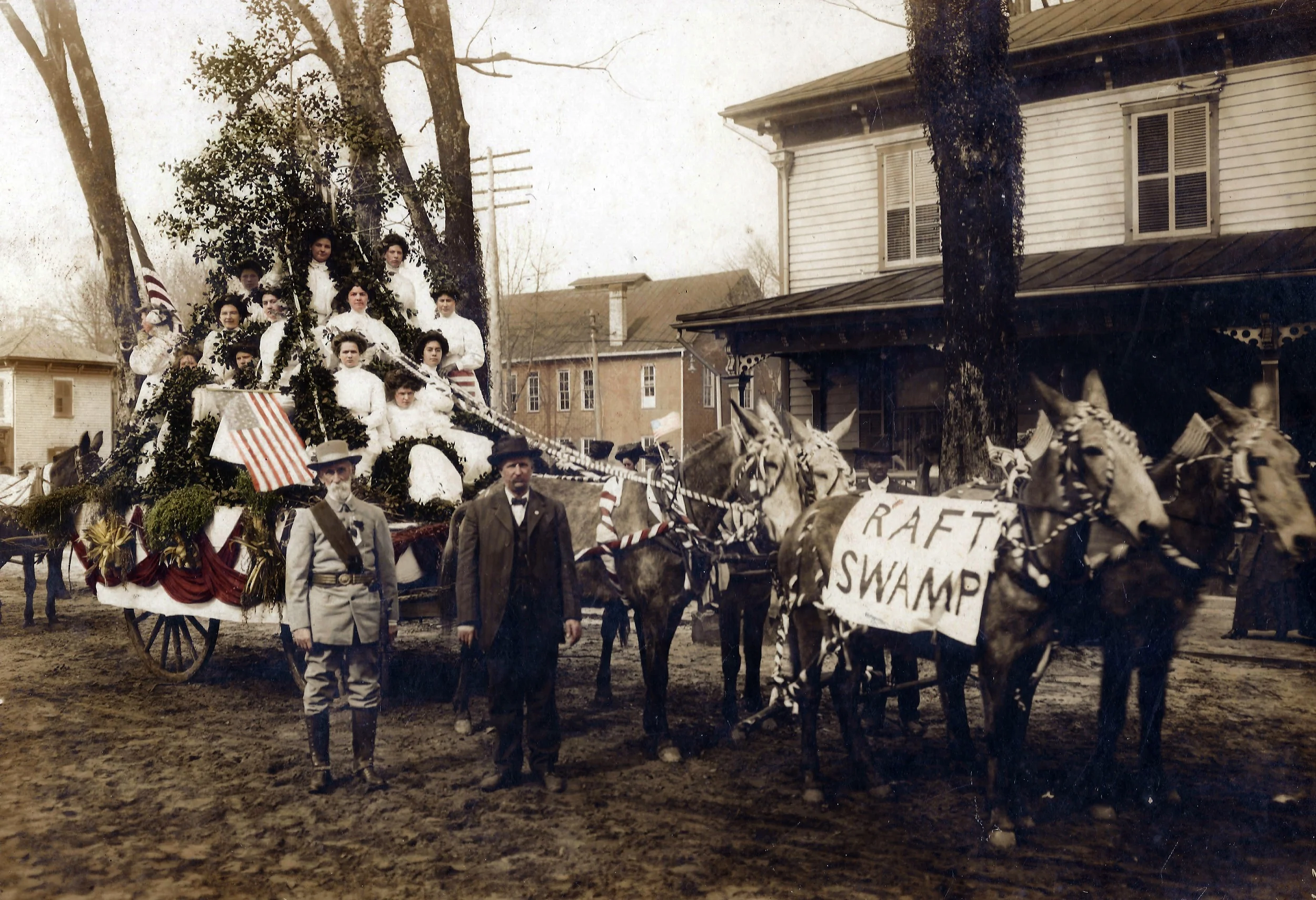From time to time when doing genealogical research, you come across something or someone that strikes your interest. It could be an event or battle or a document of seemingly little historical import, but you find yourself becoming engrossed with learning all about that person, place or thing.
One of my favorite persons who I've discovered is Malcolm Drake McNeill. He was the son of William Culbreth McNeill (23 Feb 1809 - 25 July 1897) and his first wife, Pamela Ann Drake (9 April 1815 - 2 April 1852). Note: W. C. McNeill was the son of Malcolm Culbreth McNeill, and grandson of "Sailor" Hector McNeill.
I first came across Malcolm Drake when re-reading James Roberts' book, Some Descendants of Sailor Hector McNeill. Roberts includes a great deal of information on his Uncle "Big Make" in the appendix of his book.
Malcolm Drake McNeill was born in the Moss Neck community on 3 July 1847. This places him about ten years older than our Culbreth sibling group (W.K., Make, John, Joseph, etc.). He attended school in Red Springs, taught by William Stewart, and in 1860's attended school in Anson County, taught by a Rev. Neill Ray.
In 1863, at the age of 15, Malcolm Drake McNeill left school and mustered with the Confederate army in Brunswick County, NC. He fought at Fort Fisher near Wilmington and was captured by Union forces when they overtook the fortifications and imprisoned. While a prisoner, he recalls to Roberts that he came across his cousin of his, Dougald McCormick, who offered him food and drink.
After the Civil War, Malcolm was released and returned home to start his own farm. However, the ravaged countryside was in no shape to wield a profitable return. Much of the transportation infrastructure had been destroyed by General Sherman's army, and the Radical Republicans in charge of the county enacted harsh treatment on the planter class. When the Conservatives regained control of Robeson County, they retaliated against not only the Radical Republicans but the local Native Americans and freed slaves. In response, the Lowery Band led by Henry Berry Lowery, roamed the area surrounding what would become Pembroke, attacking, stealing and looting plantations in the area, many of which were owned by these Scottish highlanders and their descendants. The McNeills in Moss Neck were at ground zero.
On November 20, 1870 he was kidnapped by the Lowery Gang and released the following morning. Two months later, while walking to the Moss Neck Depot with his brother-in-law John Taylor, Malcolm witnessed Taylor's head explode from a shotgun blast from the Lowery Gang hiding in the brush nearby. The plantation of Malcolm's father, William Culbreth McNeill, was robbed several times by the gang. In retaliation, Malcolm led a gang of ten white men to the home of Benjamin Bethea, a black man, and brutally murdered him for his suspected involvement with the Lowery Gang. This was indeed a terrible tragedy and low-point in the biography of Malcolm Drake McNeill.
Malcolm Drake McNeill circa 1880
A judge in Lumberton declared Malcolm an outlaw and he and the other murderers was later indicted by a Grand Jury in 1871. Among the indicted was Benjamin Fitzrandolph McNeill, Malcolm's only surviving brother, who fled south to Mississippi. Malcolm left for Baltimore and eventually made his way to Indian Territory and later Texas by rail, before arriving in Screven County, Georgia.
At the age of 27, Malcolm left the contentious and calamitous Lowry War behind and found a new life in Georgia, employed in the turpentine industry. Here he married Mary Elizabeth "Minnie" Zitterouer, a descendent of the German Salzburgers of Effingham County, Georgia. In 1875, they had a daughter, Louise Taylor McNeill. Little is known about Malcolm and Minnie's life between 1875 - 1900. It's likely he returned to visit friends and relatives in Robeson on occassion. His brother, Benjamin Fitrandolph McNeill, married in Robeson in 1880, so there is clear evidence this brother returned and largely waited out the clock on his indictment.
This unidentified photo was found with many photos of Malcolm Drake McNeill. Could this be Minnie Zitterour?
In 1897, Louise McNeill married Doctor Chauncey Rakestraw. In 1900, the Rakestraws made home in Charlotte, North Carolina, where his mother and the McNeill in-laws also lived.
Louise Taylor McNeill and husband, Dr. Chauncey Rakestraw
The family was frequently on the move. From 1906-1913, they lived in Savannah, Georgia where Malcolm, in his sixties, was a hotel clerk. In 1915, they moved to Asheville, North Carolina where Malcolm was security for the Langren Hotel. In the 1920s, he lives in Chester County, South Carolina and later Greenbrier, West Virginia. Sometime prior to 1930, Malcolm, now in his eighties, returned to Robeson County, North Carolina specifically Red Springs where Dr. Rakestraw opened a practice. The Rakestraws had one daughter, Louise Rakestraw, who was born in 1900, and was described as a quiet, shy and lonely girl.
Malcolm Drake McNeill and his grandaughter, Louise Rakestraw. How about that mustache?
Malcolm died December 18, 1936, surrounded by friends and relatives he had left so long ago to escape justice, and was described as "one of Robeson's Most Colorful Characters." Having fought in the Civil War, lived through Reconstruction and the local conflict known as the Lowery War, then fleeing West, to working in the turpentine pines of Georgia, then traveling to more places than many of his contemporaries at the turn of the century, Malcolm was true to the curse, "may you live in interesting times."
Additional readings:
Excerpt from "Descendants of Sailor Hector McNeill", semi-autobiographical account by James Roberts.




